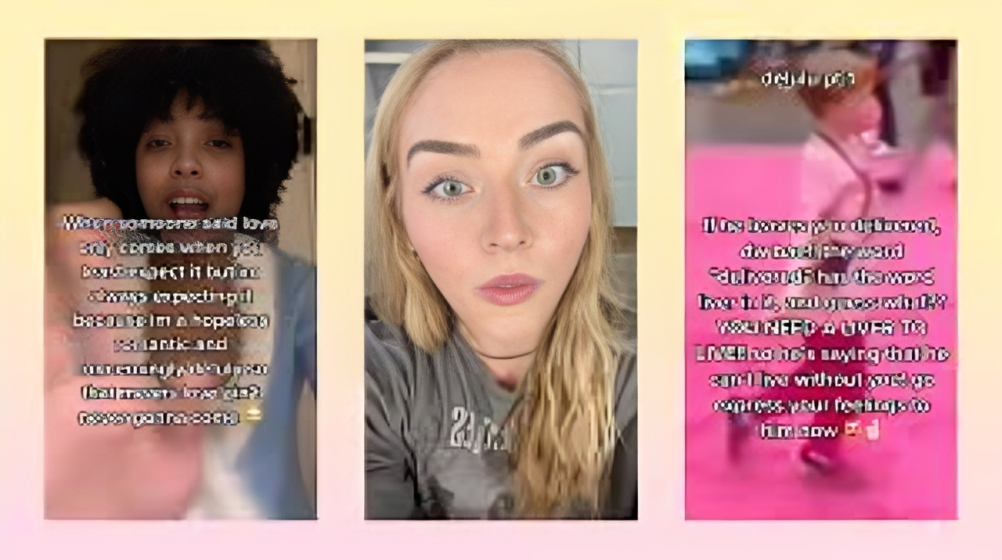In today’s fast-paced digital world, trends can emerge and spread with astonishing speed. One such trend that has taken social media by storm is “delulu,” a term that has captured the imagination of millions, particularly among younger audiences. But what does “delulu” mean, and why has it become a buzzword in various online spaces? In this article, we will explore the origins of the term, its significance in modern culture, and its implications on mental health and social interactions.
Understanding the Term “Delulu”
The term “delulu” is a playful, shorthand version of “delusional.” It is often used in online discussions to describe a person who holds unrealistic beliefs or dreams, especially in the context of relationships or personal aspirations. The usage of “delulu” can vary, ranging from affectionate teasing among friends to serious discussions about one’s mental state.
Origin and Popularity
The term gained significant traction on platforms like TikTok, Twitter, and Instagram, where users share relatable memes and anecdotes that resonate with the concept of being “delulu.” In many cases, individuals use it to describe their own tendencies to fantasize about romantic scenarios, celebrity crushes, or unrealistic life goals.
For example, a user might post a video about imagining a romantic encounter with their favorite celebrity, using the hashtag #delulu. This self-aware approach has created a sense of community among those who find solace in shared experiences of dreaming big, no matter how unrealistic those dreams might be.
The Role of Social Media in Promoting Delulu Culture
Social media platforms have been instrumental in the rise of “delulu” culture. With the ability to share thoughts and experiences instantly, users can connect with like-minded individuals who embrace the whimsical nature of the term. The prevalence of hashtags like #delulu allows people to explore content that resonates with their experiences and emotions, creating a digital space for validation and acceptance.
Memes and Humor
Memes are at the heart of the delulu phenomenon. Users create humorous images or short videos that highlight the absurdity of certain delusional thoughts, making it easier for others to relate. For instance, a meme might depict a person daydreaming about their life as a famous singer, followed by a caption that reads, “Me: singing in the shower—delulu mode activated.”
This type of content not only provides entertainment but also fosters a sense of community among users who may feel isolated in their dreams or fantasies. The lightheartedness of these memes encourages individuals to embrace their delusional tendencies rather than suppress them.
Influencer Culture
Influencers play a significant role in popularizing the term “delulu.” Many content creators use the term to describe their outlandish goals, quirky habits, or unrealistic relationship expectations. By doing so, they normalize the idea of dreaming big and highlight the importance of self-expression, even when it borders on the fantastical.
For example, an influencer might share a story about their obsession with a particular celebrity, using the term “delulu” to frame their feelings in a humorous light. This approach resonates with audiences who appreciate authenticity and relatability, reinforcing the notion that everyone has their moments of being “delulu.”
The Psychological Impact of Being Delulu
While embracing a “delulu” mindset can be fun and entertaining, it also raises questions about the psychological implications of such behavior. On one hand, fantasizing about ideal scenarios can serve as a coping mechanism, providing individuals with an escape from their everyday realities. However, it can also lead to potential pitfalls if taken too far.
Positive Aspects
- Coping Mechanism: Engaging in “delulu” thoughts can help individuals manage stress or anxiety by allowing them to envision a better life. This escapism can foster creativity and motivation, as individuals set goals based on their dreams.
- Community and Connection: The shared experience of being “delulu” fosters a sense of community among individuals who might otherwise feel isolated. By discussing their dreams and fantasies openly, they can connect with others who have similar thoughts and feelings.
- Encouragement of Self-Expression: The delulu culture encourages individuals to express themselves freely without fear of judgment. This self-acceptance can promote positive mental health and emotional well-being.
Potential Downsides
- Disconnection from Reality: While it’s healthy to dream, an excessive focus on unrealistic expectations can lead to disappointment and frustration. Individuals may find themselves feeling unfulfilled if they invest too much in their fantasies without taking practical steps toward achieving their goals.
- Impact on Relationships: If someone becomes too entrenched in their delusions, it can negatively affect their relationships. Friends and family may struggle to relate to someone who constantly daydreams about unattainable scenarios, leading to feelings of isolation.
- Mental Health Concerns: For some individuals, a “delulu” mindset might mask deeper psychological issues, such as anxiety or depression. It’s essential to recognize when daydreaming becomes a means of avoiding reality rather than a healthy coping strategy.
Delulu in Popular Culture
The term “delulu” has made its way into popular culture through various forms of media. From television shows to music, the concept of being “delusional” in a lighthearted, relatable way is prevalent.
Television and Film
Shows like “Euphoria” and “Sex Education” often depict characters who grapple with their fantasies and delusions. These portrayals can resonate with viewers, sparking conversations about the balance between dreaming and reality.
Music
Musicians have also embraced the concept of being “delulu” in their lyrics. Songs that discuss unrequited love, unattainable desires, or whimsical fantasies often utilize this playful language, connecting with audiences on an emotional level.
Navigating the Delulu Mindset
For those who find themselves identifying with the “delulu” trend, it’s essential to strike a balance between dreaming and reality. Here are some tips for navigating this mindset:
- Embrace Your Dreams: Allow yourself to fantasize and dream big, but be mindful of the difference between dreams and goals. Use your delusions as inspiration to set achievable objectives.
- Stay Grounded: While it’s fun to indulge in daydreams, make sure to maintain a connection with reality. Check in with yourself regularly to ensure that your aspirations align with your values and capabilities.
- Foster Real Connections: Engage with friends and family about your dreams, but also take time to cultivate genuine relationships. Sharing your thoughts can help you feel more connected to others, reducing the risk of isolation.
- Seek Professional Help if Needed: If you find that your delusions are impacting your mental health or relationships, consider talking to a therapist or counselor. They can provide support and help you navigate your thoughts in a constructive way.
Conclusion
The rise of the term “delulu” reflects a broader cultural phenomenon in which individuals celebrate their dreams, no matter how unrealistic they may seem. While this trend can foster community, creativity, and self-expression, it’s essential to remain aware of the potential downsides of excessive daydreaming. By embracing a balanced approach to the “delulu” mindset, individuals can enjoy the fun of dreaming while staying grounded in reality. Whether you’re sharing memes on social media or navigating your aspirations, remember that it’s okay to be a little “delulu”—just make sure to keep your feet on the ground.




